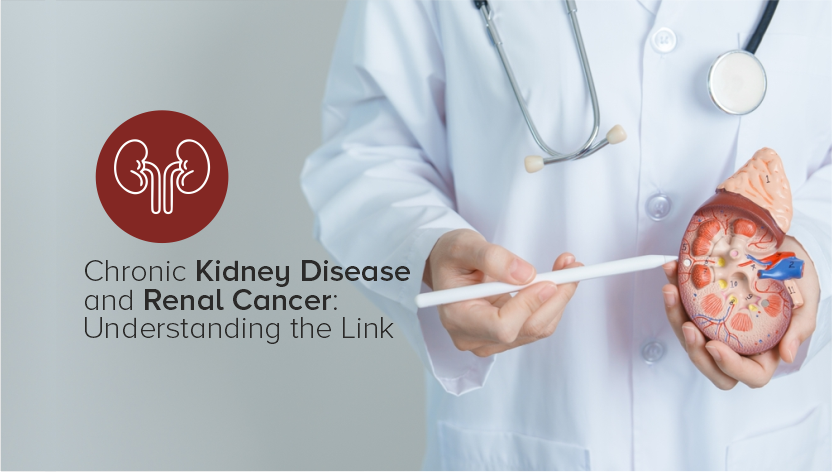Chronic kidney disease (CKD) and Renal Cell Cancer (RCC) might seem like separate health issues, but new research shows they are more closely linked than previously thought. The association between renal cell carcinoma (RCC) and chronic kidney disease (CKD) is intricate and reciprocal: On the one hand CKD to progress to RCC is due to Oxidative stress or an underlying cystic illness while RCC may result in CKD by:
